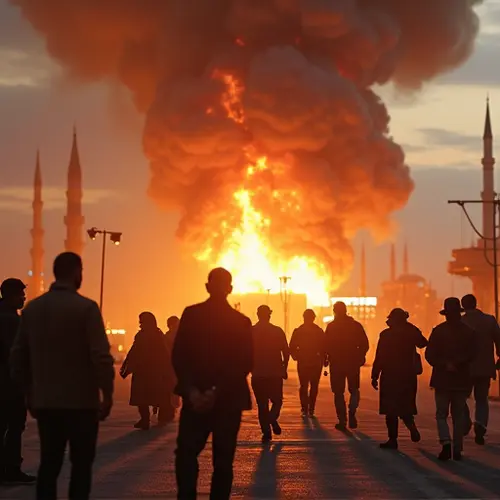
U.S. Launches Airstrikes on Iranian Nuclear Facilities
The United States conducted airstrikes on Iran last night, targeting three nuclear complexes. President Trump announced the attacks on his social media platform, stating that the U.S. Air Force had bombarded the facilities. In response, Iran launched missiles at targets in Israel, injuring dozens.
Details of the U.S. Attacks
The strikes targeted the Fordo, Isfahan, and Natanz nuclear sites. The Fordo complex, buried deep under a mountain, was hit with GBU-57 'bunker buster' bombs, designed to penetrate deep underground. These are the heaviest non-nuclear bombs in the U.S. arsenal, weighing 13,600 kilograms.
The Iranian Atomic Energy Organization confirmed the attacks but emphasized that its nuclear program would continue. There is no immediate confirmation of casualties in Iran, and the International Atomic Energy Agency (IAEA) reported no radioactive contamination at the sites.
International Reactions
UN Secretary-General Guterres expressed deep concern, calling the strikes a "dangerous escalation" in an already tense region. The EU urged all parties to return to negotiations, while the UK supported the U.S. action, citing Iran's nuclear program as a global threat. Saudi Arabia condemned the violation of Iran's sovereignty and called for a political solution.
Israel's Response
Israeli Prime Netanyahu praised the U.S. strikes, calling them a "courageous decision" that would change history. Meanwhile, Iran warned of "eternal consequences" and retaliated with missile strikes on Israel, injuring 86 people.
Dutch Government's Stance
The Dutch government convened an emergency meeting of the National Security Council to discuss the implications of the attacks. Defense Minister Brekelmans noted that the U.S. action was not unexpected, given prior intelligence.

 Nederlands
Nederlands
 English
English
 Deutsch
Deutsch
 Français
Français
 Español
Español
 Português
Português